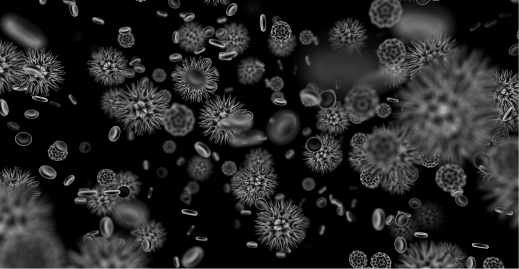On 8 August 2014, The Director-General of World Health Organization (WHO) accepted the assessment of the relevant committee and declared the Ebola outbreak in West Africa a Public Health Emergency of International Concern.
Lifecountz approached, Padmashree Prof Dr Alaka Deshpande, Hon Professor of Medicine, JJ group of Hospitals, Mumbai for a fact sheet on What? How? And When of Ebola.

Ebola virus disease (EVD), formerly known as Ebola haemorrhagic fever, is a severe and often a fatal illness, the name being derived from the village situated near the Ebola river in Congo.
How does Ebola transmit?
Fortunately, Ebola does not transmit through air! It transmits through close contact with the blood, secretions, organs or other bodily fluids of infected persons/ animals (commonly monkeys).
As the virus spreads through the body, it damages the immune system and organs and eventually leading to decrease in platelet counts leading to severe and uncontrollable bleeding. Almost 90% of those who contract EVD outbreaks do not survive.
People are infectious as long as their blood and secretions contain the virus. Men who have recovered from the disease can still transmit the virus through sexual means for up to 7 weeks after recovery.

Signs and symptoms
Since Ebola viral disease is a severe acute viral illness, symptoms are akin to other febrile viral ailments e.g. dengue; EBD produces the following symptoms
- Sudden onset of fever
- Intense weakness
- Severe muscle pain/ Headache
- Sore throat
- Vomiting / Diarrhoea
- Skin rash
- In later stages
- Impaired kidney and liver function
- Both internal and external bleeding
- White blood cell and platelet counts decrease
Prevention and control
Since NO specific treatment or vaccine is available, awareness of the risk factors and preventive measures is the only way to avoid the infection/ reduce the incidence.
Following measures are helpful:
- In case of outbreak the premises should be quarantined
- Avoid close physical contact with Ebola patients.
- Gloves and appropriate protective gears like face mask should be used while nursing ill patients at home or visiting the patients in the hospital
- Wash your hands after visiting patients in hospital or after taking care of patients at home or after coming in skin contact with any suspected case
- Meat should be thoroughly cooked before eating.
Educating common public on reducing the risk factors and preventive measures
Since EBV patients cannot be identified during the initial stages as the initial symptoms are not specific; standard precautions like basic hand hygiene, respiratory hygiene, use of gloves, disposable syringes and safe cremation/ burial practice should be adopted.
For medical profession:
- Samples from patients are an extreme biohazard risk and hence testing should be conducted under maximum biological containment conditions.
- Animals should be handled with gloves.
- People who have died from Ebola should be promptly and safely cremated/ buried.
Treatment
- Although there is no definite treatment, since patients are frequently dehydrated they require oral rehydration with solutions containing electrolytes or intravenous fluids.
- Severely ill patients require intensive supportive care.
- Isolation of infected person
Take home message
Standard precautions are recommended in the care and treatment of all patients regardless of their confirmed or suspected infectious status, which include the basic level of controlling infection by washing hands regularly, using personal protective equipment to avoid direct contact with blood and body fluids, prevention of needle stick and injuries from other sharp instruments, and a set of environmental controls.
Prof Alaka Deshpande has an experience of over 45 years teaching and treating patients at JJ group of hospitals, Mumbai. She specialises in Infectious diseases esp. HIV-AIDS and received Padmashree for her pioneering work in the field of HIV-AIDS. She also played a crucial role in developing the nuclear medicine, critical care and AIDS units of the Sir JJ Group of Hospitals, Mumbai. She is a member of Scientific Advisory Committee, National Ageing Research Institute (NARI)


Please comment with your real name using good manners.